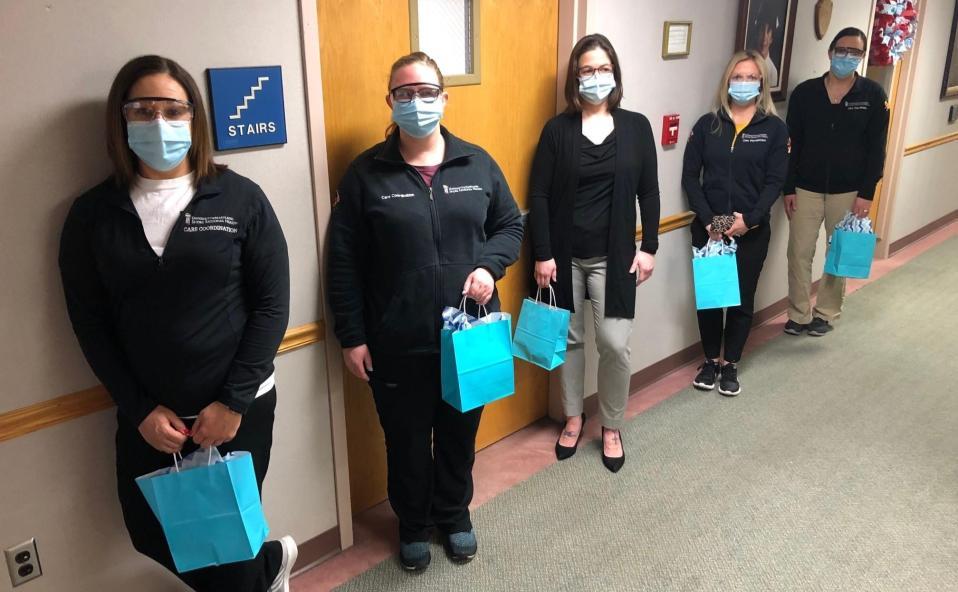The National Association of Social Work (NASW) honors the 700,000-plus social workers nationwide during of March as National Social Work Month. This year’s theme, Social Workers Are Essential, emphasizes the important role social work professionals play in community wellbeing. Trained to help people address personal and systemic barriers to optimal living, their mission is to effect positive change with individuals, families, groups and entire communities.
 University of Maryland Shore Regional Health’s medical social workers help patients and caregivers during their most vulnerable times through effective communication skills and a holistic approach to patient care needs.
University of Maryland Shore Regional Health’s medical social workers help patients and caregivers during their most vulnerable times through effective communication skills and a holistic approach to patient care needs.
Deserving special recognition and appreciation this month are a host of social workers in several departments. They include: in Behavioral Health – Katey Carroll, Pam Young, Chelsea Slacum, Kirby Meredith, Audra Cherbonnier, Tyler Betz, Christina Acree, FaundaCrowson, Robert Martin, Jr., and Susan Ingersoll; at the Cancer Center – Patty Plaskon and Jennifer Buckler; in Home Care, April Sharp (Chester River Home Care) and Alice Ofano (Shore Home Care); Palliative Care – Monick Conway and Sarah Hopkins; and in Transitional Care Coordination / Population Health — Michelle Matthews, Stacey Kuhn, Melissa Kleppinger, Sarah Demers, Brittni Conn and Angela Meekins.
Photo: Shown celebrating National Social Work Month are UM Shore Regional Health social work care coordinators Stacey Kuhn, Sarah Demers, Melissa Kleppinger, Brittni Conn and Angela Meekins.
Among several determinants of successful patient outcomes are access to adequate food supply and housing. During the past year, in part due to the COVID-19 pandemic, Shore’s medical social workers saw higher numbers of patients whose post-discharge plans were made more complicated by deficient housing and food access. They addressed these challenges by getting to know each patient, gaining his or her trust during consultations with effective listening and compassion, and by having the knowledge of community resources and support that can be enlisted once the patient is discharged to home.
As Brittni Conn, who works in telemetry in UM Shore Medical Center at Easton, explains, “Hospital social work is meaningful to me because during a very stressful time in their lives, I get to help patients and their families navigate the health system and connect them to resources to help simplify their next steps. Social work is a work of heart.”
Being a medical social worker means also means being a voice for patients who lack adequate resources to manage their health conditions after leaving the hospital. “To me, being a social worker means being an advocate for all patients, especially those who are vulnerable and/or oppressed,” says Sarah Demers, who works in the Requard Center for Acute Rehabilitation. “It means speaking up for patients who need support during difficult times, helping patient’s meet their needs, and also linking patients with resources so that they may succeed.”



Write a Letter to the Editor on this Article
We encourage readers to offer their point of view on this article by submitting the following form. Editing is sometimes necessary and is done at the discretion of the editorial staff.